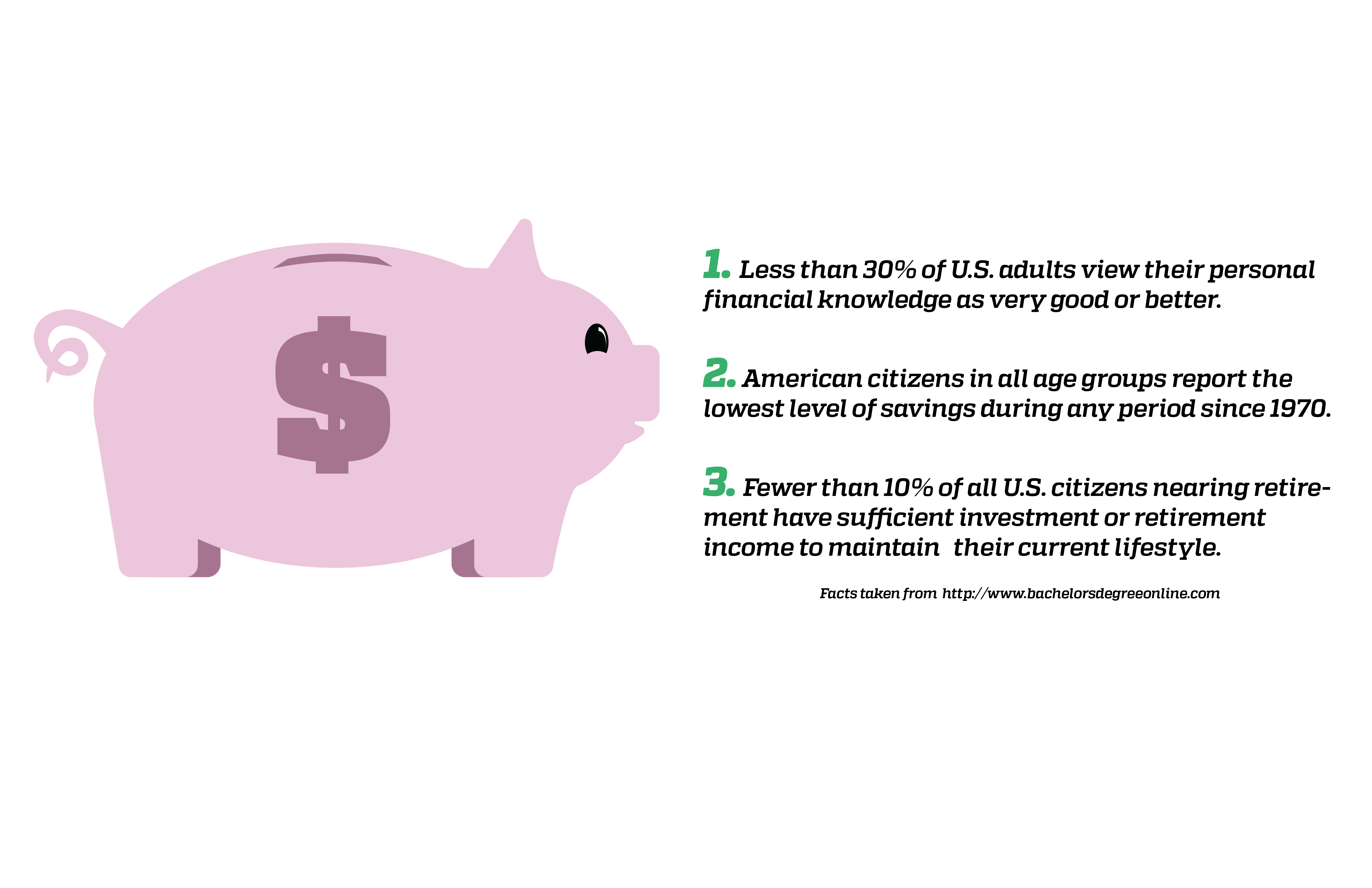
Here is a list of tips from financial experts to help students develop personal finance skills.
Have the right perspective
Approaching personal finance with an eternal perspective is key, according to BYU finance professor Bryan Sudweeks.
“Personal finance is simply part of the gospel of Jesus Christ,” Sudweeks said.
Sudweeks recently co-authored an article featured in an issue of the LDS Ensign magazine. In the article, he and co-author E. Jeffery Hill described what it means to have an eternal perspective with regards to personal finances.
“The eternal perspective assumes that all material resources are owned by God and that we are responsible to use those resources to bless His children. The world’s materialistic perspective is any other perspective that takes God out of the equation,” Sudweeks said in the article.
He said one of the biggest mistakes a student can make is failing to bring Heavenly Father into his or her personal finances. Paying a full tithe, following the counsel of priesthood leaders and prayerfully seeking God’s input are ways of bringing him into one’s personal finances, according to Sudweeks.
“You can do it your way, or you can do it a better way,” Sudweeks said.
Create a budget and stick to it
At its core, creating a budget means keeping track of what money comes in and what money goes out. This may seem tedious to many students, but the experts agree that budgeting is simply too important to skip.
John Gruninger graduated from the finance program at BYU and now works as an insurance broker. Tracking when and where money is spent will reveal troubling spending patterns and naturally curb poor money habits, according to Gruninger.
“As a broker, I see a lot of young people spending beyond what they should be; not planning ahead to make sure that they can sustain the lifestyle they are living,” Gruninger said.
Gruninger explained that budgeting is a way of planning to ensure the most important things are taken care of first.
“When you look at all your expenses as a whole, it changes how you prioritize them. When you look at them individually, you don’t see how they fit into the big picture,” Gruninger said.
Elise Fauth, the manager of the Wells Fargo branch located in the Wilkinson Center, agreed that budgeting is necessary. She recommended using tools that can help organize savings goals and track expenses. Tools like Mint or Wells Fargo’s Spending Report are free and potentially convenient ways to get students started with building budgets of their own.
Consider getting a credit card
Credit cards are perhaps one of the most common and most controversial financial products available to young people. Credit cards are capable of causing long-term financial struggle, but when used correctly they can have positive results for students, according to some experts. Sudweeks pointed out that how one uses this particular tool will really determine its impact.
“A credit card is either a tool to help you accomplish your goals or the single most destructive device of mankind – it all depends on how it is used,” Sudweeks said.
Sudweeks said students should consider the cost of debt when deciding to finance a purchase or borrow money on a credit card or anywhere else. With the additional and often forgotten cost of taxes, interest and tithing, debt can often stretch far longer than a student might initially plan for.
Gruninger agreed that poor credit management or broken commitments may limit a student’s financial flexibility and cause restrictions or monetary penalties in the future.
Fauth recommends giving serious thought to building credit now as a way of preparing for future plans. She explained that without credit it may be difficult to obtain necessary loans for graduate school, buy a house or even buy a car. Establishing credit now may also save money in the future, according to Fauth.
“Credit can help save money because more established credit can earn you a lower interest rate (on future loans),” Fauth said.
Fauth recommended looking at credit cards specifically intended for college students who may not have any credit established.
Ask questions and seek answers
Personal finance may seem like a complicated subject to students without much financial experience of their own, but there are resources available to help. Fauth recommends establishing a relationship with a personal banker or financial representative for advice and future questions.
“Knowledge is never a bad thing. Even if you have learned a lot with family, it never hurts to get advice and ask questions,” Fauth said.
If one-on-one sit-downs seem intimidating, personal finance classes offered by Sudweeks during Education Week at BYU might be a good alternative. Fauth also said her branch is currently working with BYU’s Multicultural Student Services to establish a financial literacy class open to all students.
Sudweeks directs students to the counsel provided by current and past prophets and apostles.
“Identify the counsel provided by the brethren related to money matters. Is that just counsel, or is that a message from the prophet of God? A matter of money (becomes) a matter of faith,” Sudweeks said.




